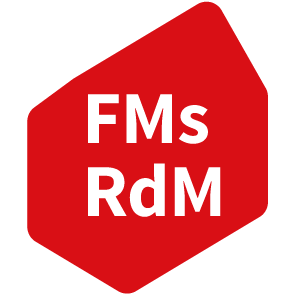Indie Manufacturing is a research project being undertaken by Andy Goodwin and MCQN Ltd as part of the Royal College of Art’s Future Makespaces in Redistributed Manufacturing project.
“The UK doesn’t make anything any more.”
“Once you make more than a couple you have to go to China.”
Anyone involved in the maker community will know that neither of those statements are true, yet there are still far more people who want to turn their ideas into products than there are businesses making products.
The route from hobby maker to professional craftsperson is well understood, and the high-volume “startup” recipe of raising VC funding and outsourced manufacturing is well defined (if not as well understood).
We are going to explore whether or not there’s a middle way.
- Can a closer - geographically - supply chain reduce the risk in scaling up production volume? How can we make the existing small-scale manufacturing companies more visible to makers?
- What support is required for makers who want to grow a business?
- How can we reimagine what we make to move towards more sustainable means of production?
- Can we use local supplier specialisms to shape the products we choose to produce?
- How do we encourage manufacturers to engage and work with makers?
What’s the approach?
We’re taking a two-pronged approach to our research.
Firstly, we’ll be using our local connections in the DoES Liverpool community, the UK Maker Belt Assocation and Liverpool’s Local Enterprise Partnership manufacturing arm to dig into what’s available in the North West.
We’ll be populating a map of companies hitherto hidden away on industrial estates; publishing interviews with existing indie manufacturers and makers who’d like to join their ranks; and arranging field trips so people can find out what manufacturing looks like on the ground.
And secondly, we’ll be taking a real product from prototype through to production. Using one of MCQN Ltd’s prototypes as a guinea pig, we’ll test whether the knowledge gained in the mapping activity makes medium-scale electronic product manufacturing possible.
Using a real product will ensure we get actual, rather than theoretical, responses from the suppliers involved, and also identify parts of the solution or barriers that we’d otherwise overlook.</p>
Who we are, and how that informs this work
Our participation in the emergence of the maker movement over the past seven years gives us a good understanding of the challenges in making products, from both personal experience and through our peers.
These issues are things that we’ve both been chipping away at individually for a while - Andy from a wider perspective of businesses across the region, and Adrian for his business. This project allows us to investigate the problems in a more focused and systematic manner.
Talking About the Work
Adrian gave a talk about the project at OSHCamp in 2016, which was recorded and can be watched below:

